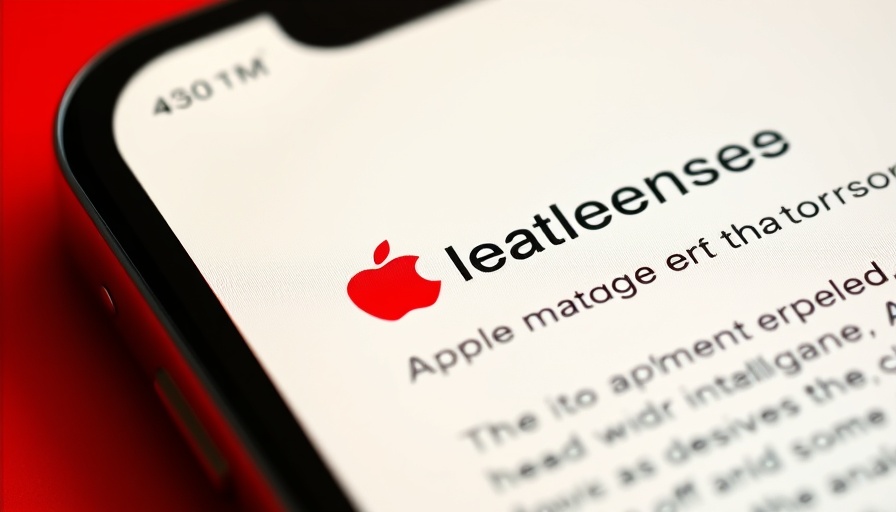
Are Consumers Really Ignoring AI on Smartphones?
Recent trends suggest that while AI is taking over various sectors, smartphone users aren’t prioritizing it when purchasing new devices. Despite the buzz surrounding features like advanced AI integration, data shows that consumers are still leaning towards simple usability, battery life, and camera quality rather than the allure of AI functionalities. Are we missing the bigger picture about the intersection of AI and consumer demand?
Understanding the Apple AI Dilemma
Apple's recent struggle represents a unique challenge in the tech industry. Despite being synonymous with cutting-edge technology, Apple seems to lag in the AI race, leaving users wondering what's next. While services like Siri have yet to see a significant overhaul, Apple’s focus has largely remained on hardware enhancements. This indicates that, for many consumers, AI features may not be as critical as previously thought. In fact, the iPhone's continued success might suggest that users prefer reliable performance over groundbreaking AI tools.
Sales Figures Tell the Real Story
Data from Counterpoint's latest report indicates that the iPhone 16 was the best-selling smartphone in Q1 2025, outperforming all other devices. Apple dominated this quarter, marking extensive sales success while industry rivals like Samsung maintained their presence with solid models. The fact that Apple had five of the top ten spots reflects a dedicated consumer base that values quality and consistency over flashy new features.
Consumer Preferences vs. Technology Trends
The disconnect between AI advancements and consumer buying behavior raises important questions about what users truly want from their smartphones. While tech companies are heavily promoting AI capabilities, the reality is that many consumers still prioritize traditional factors such as ease of use, display quality, and camera performance. This trend could suggest that smartphone users are more cautious adopters when it comes to integrating AI into their daily lives.
Future Predictions: What’s Next in Smartphone Evolution?
Looking ahead, smartphone manufacturers may need to reconsider how they market AI features. As consumers increasingly demand devices that enhance productivity without complicating their workflow, companies like Apple and Google will need to find new ways to incorporate AI to not only fit into user lifestyles but actually elevate them. This could lead to more intuitive features that communicate seamlessly with day-to-day tasks and simplify processes rather than introducing complexities.
Practical Tips for Choosing Your Next Smartphone
In this evolving landscape, how can digital nomads and productivity enthusiasts make informed decisions about their smartphones? Here are some practical tips:
- Assess Your Needs: Focus on your personal and professional priorities. Do you require robust productivity apps, excellent camera quality for content creation, or seamless social connectivity?
- Stick to the Basics: Often, the latest models may have the most advanced features, but something like a reliable battery life or a dependable user interface could vastly improve your experience.
- Don’t Fall for Hype: Consider critically how necessary certain AI features are for your daily tasks. A device that intelligently meets your basic needs is often better than one that gets bogged down with complex AI options.
Conclusion: An Evolving Perspective on Technology
In conclusion, as we navigate the tech landscape, it's crucial to stay informed about market trends while keeping our productivity needs front and center. The apparent lack of interest in AI-driven phones could ultimately shift manufacturers‘ focus back to user preferences rather than simply game-changing features. By staying proactive, you can utilize technology that enhances your everyday workflows.
Are you ready to align your technology choices with your productivity goals? Explore which smartphone will support your unique lifestyle!
 Add Row
Add Row  Add
Add 




Write A Comment